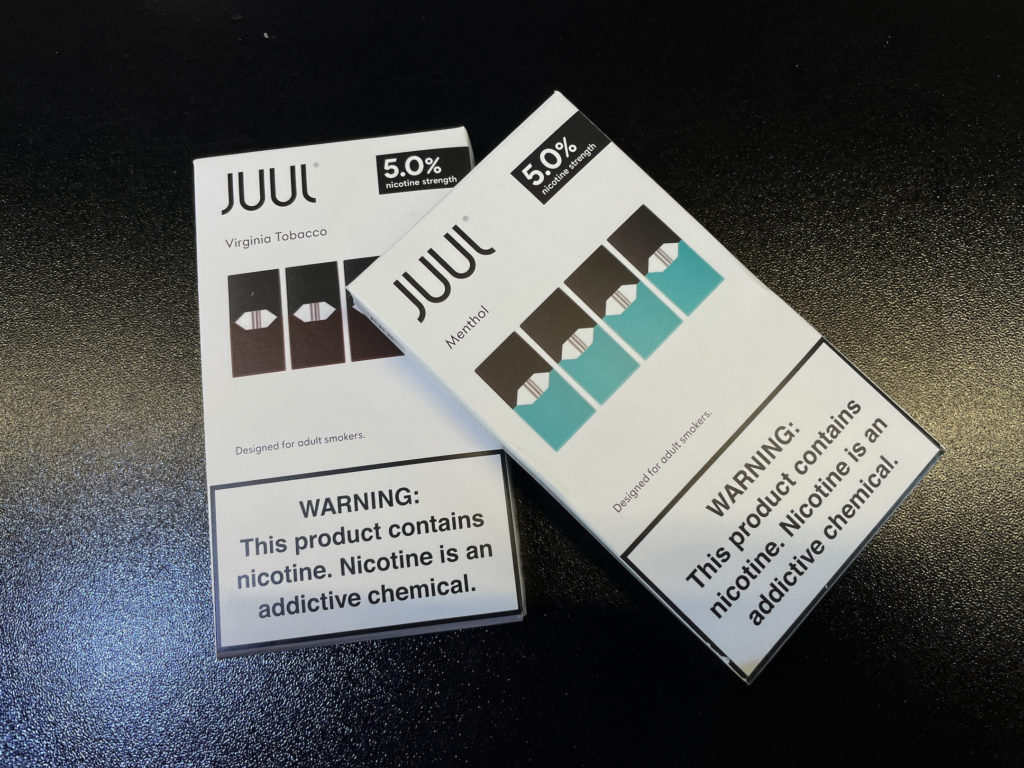KY should move Juul settlement dollars into youth anti-smoking programs, health advocates urge

By Sarah Ladd
Kentucky Lantern
Advocates who work to end smoking and vaping among youth in Kentucky are asking lawmakers to move future Juul settlement dollars from the state’s general fund into the Tobacco Prevention and Cessation Program during the 2025 legislative session.
The American Cancer Society Cancer Action Network used the Great American Smokeout last week to renew their call on Kentucky lawmakers to “do more to reduce tobacco use.” The day is dedicated each year to encouraging tobacco users to quit smoking.
Doug Hogan, the government relations director for ACS CAN in Kentucky, told the Lantern the organization would like to capture future Juul settlement dollars for the purpose of decreasing the number of youth smokers and vapers.
“The vaping epidemic is rampant in our middle schools and our high schools,” he said. “And so, what we want to do is capture Juul settlement funding and give it to the state’s Tobacco and Prevention Cessation Program so that they then can use that money for prevention in middle and high schools primarily.”
Juul, an e-cigarette company, has to pay Kentucky more than $14 million following a lawsuit over marketing practices aimed at youth. Juul’s next payment to Kentucky — about $1.3 million — is due Dec. 31.
Juul then owes the state slightly more than $2 million in December 2025 and again in December 2026.
“There’s a number of programs that can certainly be scaled up and reach additional students throughout our school systems, throughout the entire state, if there’s funding for those programs,” Hogan added. “And we believe the Juul funds provide … that revenue source that will allow the program to increase its reach for additional students to come into contact with their program and resources.”
Tobacco use is the leading cause of preventable death and disease in the United States and is responsible for nearly 9,000 deaths annually in Kentucky, according to the American Cancer Society.
Vapes are ‘just everywhere’
One of the programs Hogan said could benefit from Juul dollars is #iCANendthetrend at the University of Kentucky, which is student-run and provides prevention tools to Kentuckians.
Griffin Nemeth, a youth advisory board coordinator for the hashtag movement, said with more money, #iCANendthetrend could reach more students in Kentucky.
“We know that youth are one of the most targeted groups by the industry, and so that already makes it tough to combat manipulation, especially being reached through social media,” said Nemeth, a second-year pharmacy student at UK. “We know that there’s a youth mental health crisis going on, and so that makes it really tough for youth to find an outlet.”
Youth will turn to vaping as a way to manage anxiety, Nemeth said, and finding products isn’t difficult.
“It’s just everywhere,” he said. “We see the vapes being made available … just in baskets laying out, in unlocked cabinets, right next to candy. Those are … the point of sale things that really entice them into using these products, regardless of whether they know the health consequences or not.”
Nicotine, which is in vapes, is addictive and can damage parts of the brain connected to learning, according to the Centers for Disease Control and Prevention.
Youth also face pressure from peers, Nemeth said, to try vapes or cigarettes.
“Especially for younger middle school students, who are probably more molded by their peers than maybe older students in high school, we know that if their peers start doing something, regardless of what it is, that’s how trends come and go, that they’re more likely to start doing it as well,” he said.
Once minors are addicted to nicotine, Nemeth said, they need more resources to aid in recovery. Nicotine replacement therapy, which can help people quit smoking, is not approved by the U.S. Food and Drug Administration for use on minors.
“We know that there are more youth than ever who are wanting to quit using tobacco and nicotine products, which is really great, but, unfortunately, there aren’t a lot of great youth cessation services out there,” Nemeth said.
Past and future legislative efforts
Two bills that did not advance during the 2024 legislative session — House Bill 813 and Senate Bill 335 — would have moved Juul settlement dollars from the General Fund to the Department for Public Health to support the Smoking and Vaping Cessation Program. Both were dead on arrival.
At least one lawmaker wants to try again in 2025.
Rep. Robert Duvall, R-Bowling Green, wasn’t available for an interview, but said in a statement that the settlement “presents a once in a lifetime opportunity to make a significant investment in programs aimed a stopping vaping before it starts, as well as treatment programs to free youth already addicted to these products.”
“However, we only have one chance to invest these funds,” Duvall said. “And I know we all want to get the best results possible. I’m looking forward to the discussions that will come after the bill is filed.”